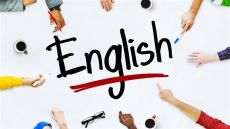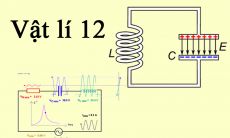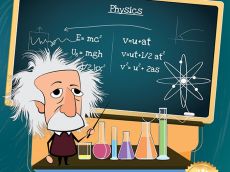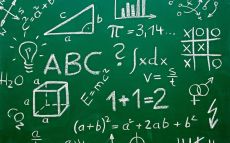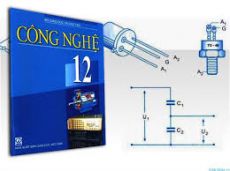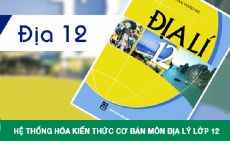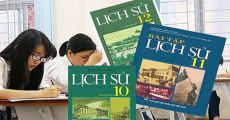Read the following passage and mark the letter A, B, C, or D on your answer sheet to indicate the correct answer to each of the questions
It is commonly believed that school is where people go to get an education. Nevertheless, it has been said that today children interrupt their education to go to school. The difference between schooling and education implied by this remark is important.
Education is much more open-ended and all-inclusive than schooling. Education knows no limits. It can take place anywhere, whether in the shower or on the job, whether in the kitchen or on a tractor. It includes both the formal learning that takes place in school and the whole universe of informal learning. The agent (doer) of education can vary from respected grandparents to the people arguing about politics on the radio, from a child to a famous scientist. Whereas schooling has a certain predictability, education quite often produces surprises. A chance conversation with a stranger may lead a person to discover how little is known of other religions. People receive education from infancy on. Education, then, is a very broad, inclusive term; it is a lifelong process, a process that starts long before the start of school, and one that should be a necessary part of one’s entire life.
Schooling, on the other hand, is a specific, formalized process, whose general pattern varies little from one setting to the next. Throughout a country, children arrive at school at about the same time, take the assigned seats, are taught by an adult, use similar textbooks, do homework, take exams, and so on. The pieces of reality that are to be learned, whether they are the alphabet or an understanding of the workings of governments, have been limited by the subjects being taught. For example, high school students know that they are not likely to find out in their classes the truth about political problems in their society or what the newest filmmakers are experimenting with. There are clear and undoubted conditions surrounding the formalized process of schooling.
Câu 36 : This passage is mainly aimed at ______.
Suy nghĩ và trả lời câu hỏi trước khi xem đáp án
Lời giải:
Báo saiDẫn chứng: The difference between schooling and education implied by this remark is important.
Câu 37 : In the passage, the expression “children interrupt their education to go to school” mostly implies that ______.
Suy nghĩ và trả lời câu hỏi trước khi xem đáp án
Lời giải:
Báo saiTrong bài đọc, cụm từ “ Trẻ con làm gián đoạn giáo dục của chúng để đi học” chủ yếu ngụ ý rằng…
A. Việc học ở trường ngăn chặn mọi người khám phá nhiều điều
B. Việc học ở trường diễn ra khắp mọi nơi
C. Cả cuộc đời là một quá trình giáo dục.
D. Giáo dục là hoàn toàn bị hủy hoại bởi việc học ở trường
Câu 38 : According to the passage, the doers of education are ______.
Suy nghĩ và trả lời câu hỏi trước khi xem đáp án
Lời giải:
Báo saiĐề: Theo bài đọc những người thực hiện giáo dục là…….
A. chỉ những ông bà được tôn trọng
B. hầu hết các nhà khoa học nổi tiếng
C. chủ yếu là các chính trị gia
D. hầu như tất cả mọi người
Dẫn chứng: The agent ( doer) of education can vary from respected grandparents to the people arguing about polities on the radio, from a child to a famous scientist.
Câu 39 : What does the writer mean by saying “education quite often produces surprises”?
Suy nghĩ và trả lời câu hỏi trước khi xem đáp án
Lời giải:
Báo saiTác giả ngụ ý gì khi nói rằng “ giáo dục thường tạo ra nhiều điều ngạc nhiên”?
D. Việc học ngoài nhà trường thường mang lại nhiều kết quả ngoài mong đợi.
Câu 40 : Which of the following would the writer support?
Suy nghĩ và trả lời câu hỏi trước khi xem đáp án
Lời giải:
Báo saiDẫn chứng: Education, then, is a very broad, inclusive term; it is a lifelong process, a process that starts long before the start of school, and one that should be a necessary part of one’s entire life
Câu 41 : The word "they" in the last paragraph refers to ______.
Suy nghĩ và trả lời câu hỏi trước khi xem đáp án
Lời giải:
Báo saiDẫn chứng: For example, high school students know that they are not likely to find out in their classes...
Câu 42 : Because the general pattern of schooling varies little from one setting to the next, school children throughout the country ______.
Suy nghĩ và trả lời câu hỏi trước khi xem đáp án
Lời giải:
Báo saiDẫn chứng: Throughout a country, children arrive at school at about the same time, take the assigned seats, are taught by an adult, use similar textbooks, do homework, take exams, and so on.
Câu 43 : From the passage, we can infer that a high school teacher ______.
Suy nghĩ và trả lời câu hỏi trước khi xem đáp án
Lời giải:
Báo saiDẫn chứng: The pieces of reality that are to be learned, whether they are the alphabet or an understanding of the workings of governments, have been limited by the subjects being taught.
